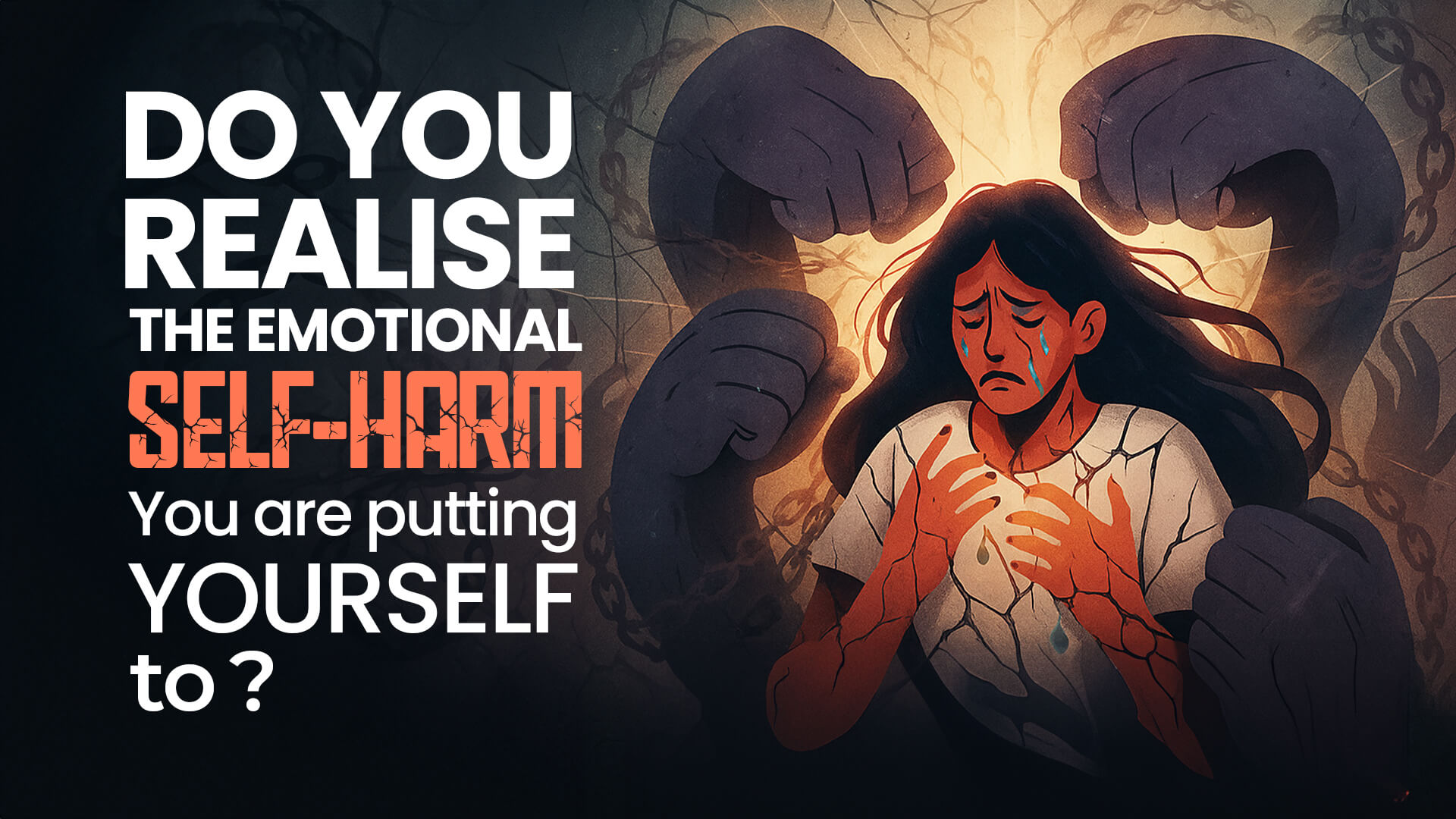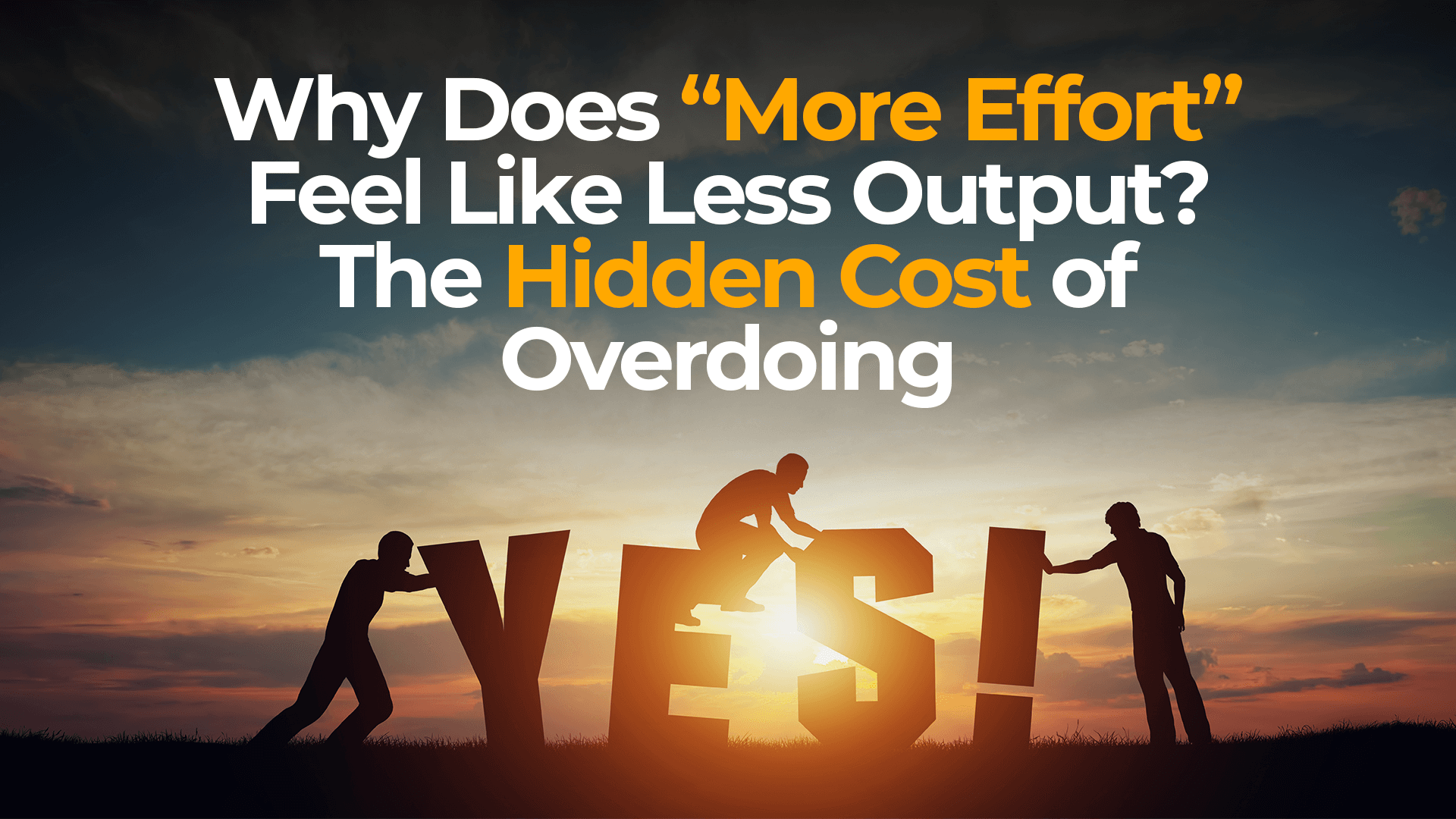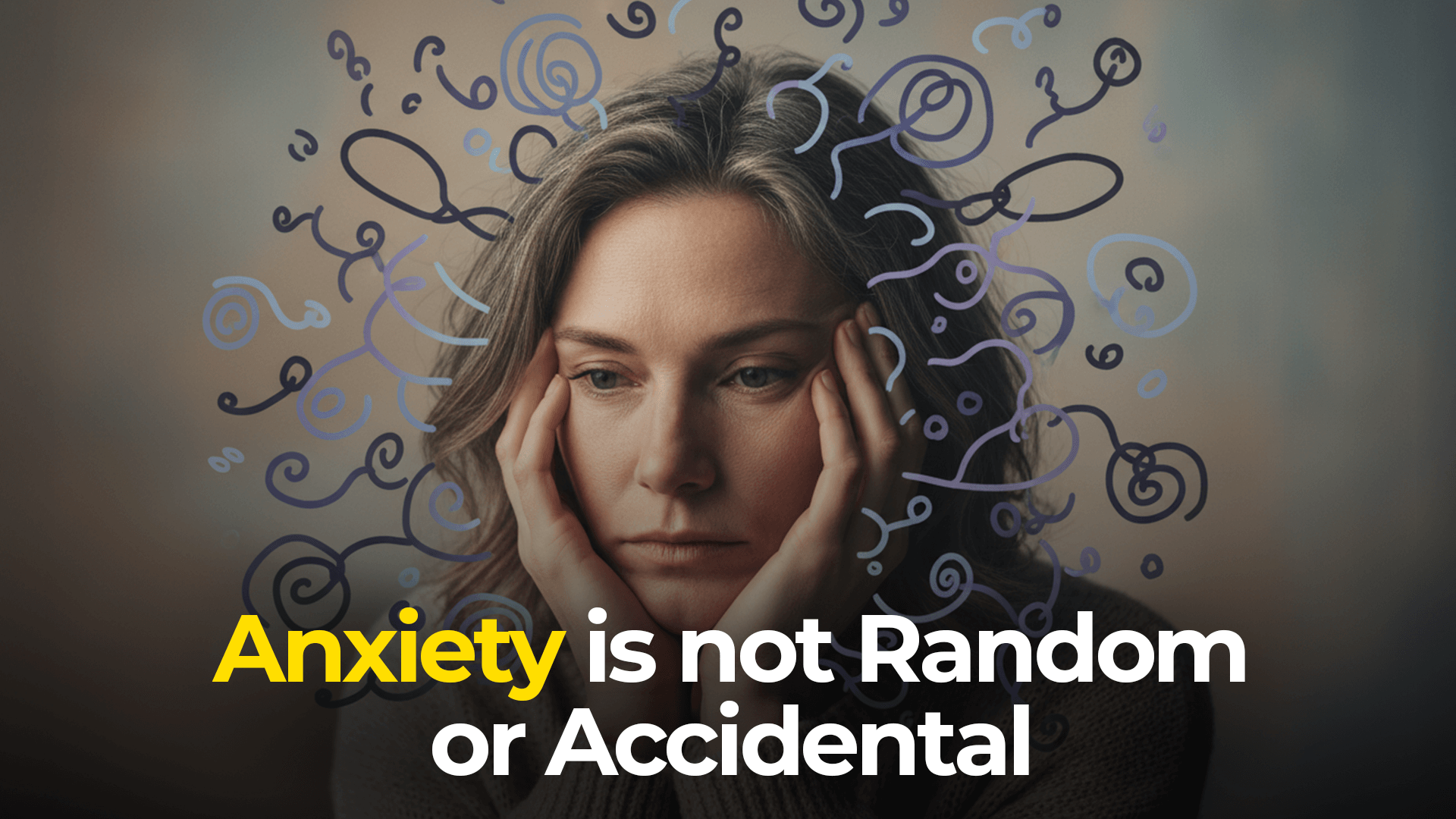When people hear the word self-harm, they often think of visible injuries like cutting or burning. But self-harm is not always physical. Emotional self-harm is less obvious yet just as damaging. It shows up in habits such as harsh self-talk, ignoring your emotions, staying in toxic relationships, or pushing yourself beyond your limits. These patterns do not leave visible scars but can quietly weaken your sense of worth and safety.In today’s world, with constant pressures from social media, academics, and society, many young people are caught in this silent struggle. Recognizing emotional self-harm is the first step toward breaking the cycle and choosing healthier ways to care for yourself.
What Does Emotional Self-Harm Mean
Emotional self-harm refers to ways you hurt yourself mentally or emotionally, often without realizing it. These behaviors are subtle, but their long-term effects are powerful. It can take many forms, including,
- Constant negative self-talk and self-blame
- Denying or suppressing feelings instead of processing them
- Staying in toxic relationships or unhealthy environments
- Overworking or pushing the body beyond healthy limits
- Avoiding joy, rest, or self-care due to guilt or fear
Even though they are not visible wounds, these habits slowly weaken self-worth, reduce resilience, and impact overall well-being. Over time, they make it harder to trust yourself, enjoy life fully, and build healthy relationships. Recognizing these patterns is the first step toward healing and choosing kinder, more supportive ways of relating to yourself.
Why Young People Struggle with Emotional Self-Harm
Young people today face challenges that previous generations did not experience in the same way, such as,
- Social media pressure. It creates a constant cycle of comparison. Seeing curated versions of others’ lives makes many feels like they are not good enough.
- Academic and career demands. They push young people to work harder and longer, often at the expense of their mental health.
- Cultural expectations. They can discourage open emotional expression, making it difficult to process feelings safely.
Many young people deal with stress by turning against themselves, through self-criticism, ignoring feelings, or overworking their bodies. This often creates anxiety that gets mistaken for intuition, whereas true intuition feels calm and supportive, while self-harm feels harsh and draining. By slowing down, listening to the body, and noticing this difference, you can rebuild trust in your inner self and wisdom.
How Can We Deal with Emotional Self-Harm
- Notice your patterns. Pay attention to the moments when you are harsh on yourself or ignore your needs. Awareness gives you the power to choose differently.
- Practice body awareness. Notice physical signs like tension, fatigue, or heaviness. The body often signals emotional harm before the mind is aware of it. Gentle movement, breathwork, or mindful stretching can release stored stress.
- Express your emotions. Journaling, art, music, or talking with someone you trust can help release feelings safely. Bottled emotions often turn into harmful patterns.
- Forgive yourself regularly. Practice releasing guilt or regret over past choices. Self-forgiveness builds emotional safety and prevents repeating harmful cycles.
- Redefine productivity. Instead of tying your worth to constant output, celebrate rest, creativity, and small wins as valuable forms of progress.
- Seek support. Professional help through therapy, coaching, or healing sessions can guide you through deeper patterns and create a safe path toward recovery.
A Simple Practice to Reconnect with Yourself
Place your hand on your heart. Close your eyes. Take three deep, slow breaths.
Ask yourself: “What would I choose if I trusted myself right now?”
This practice bypasses overthinking and connects you with your inner truth. Use it anytime you feel doubt, fear, or confusion.
Frequently Asked Questions
Q1. How do I know if I’m emotionally self-harming?
A: If you frequently feel guilty, criticize yourself, avoid emotions, or stay in harmful situations, you may be emotionally self-harming.
Q2. Is emotional self-harm less serious than physical?
A: No. Emotional self-harm can deeply affect mental health and quality of life.
Q3. Can I heal emotional self-harm alone?
A: You can start healing yourself, but professional support often speeds recovery and offers safety.
Q4. What daily practice helps reduce emotional self-harm?
A: Practicing self-compassion and heart-centered awareness can reduce harmful patterns.
Q5. Why do I struggle to accept kindness?
A: Feeling undeserving is common in emotional self-harm, making receiving difficult.
Emotional self-harm is not visible, but its impact is real. It can weaken confidence, create emotional exhaustion, and affect relationships. The good news is that it can change. Start by noticing your patterns with compassion, build new habits that honor your needs, make rest and joy as important as work and most importantly, remind yourself daily that you are worthy of kindness and love, especially from yourself.
Reach Dr. Chandni’s support team at +918800006786 and book an appointment.

































